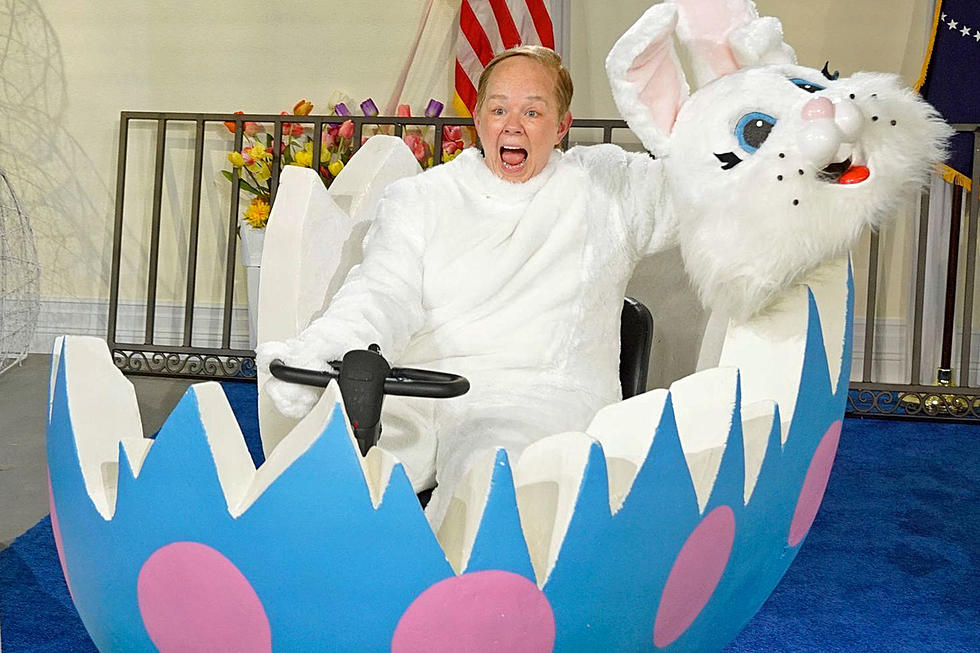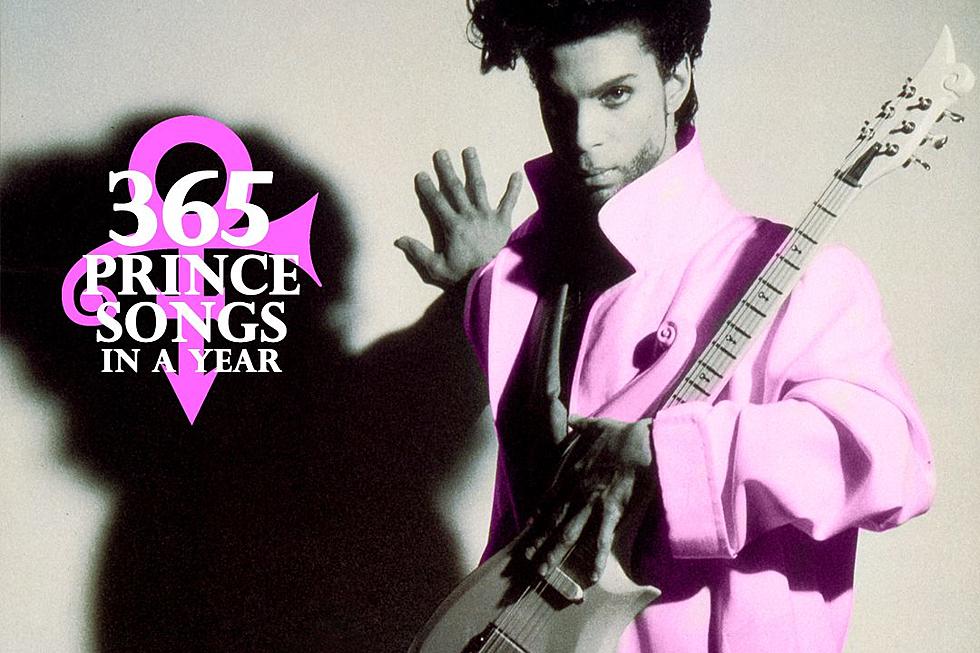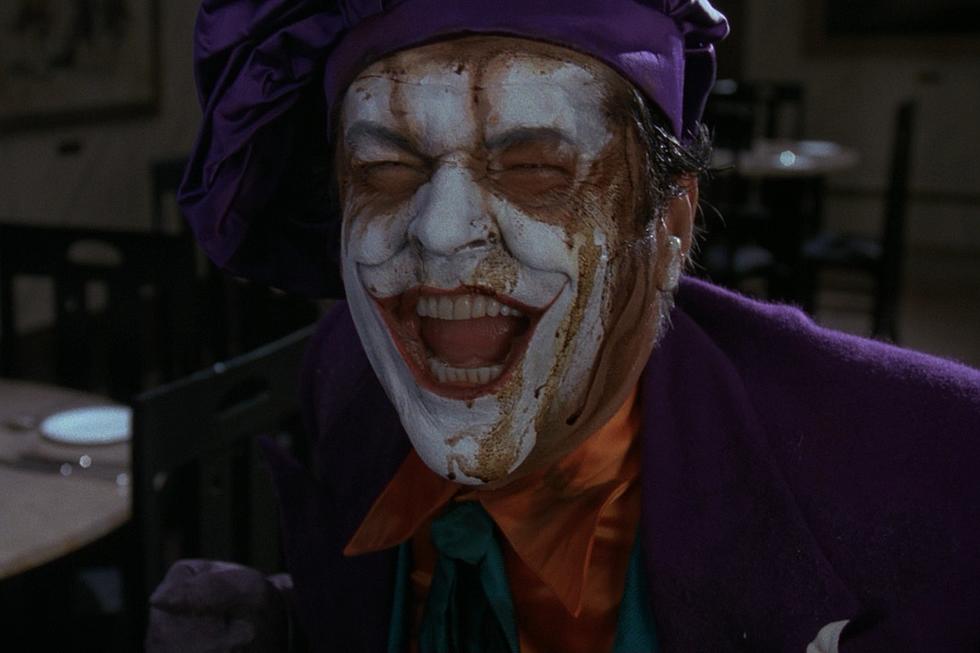35 Years Ago: Yaz Becomes a Shooting Star With ‘Upstairs at Eric’s’
Yaz was a product of happenstance, created by two very different figures who barely knew each other in an uncomfortable studio set up under a name that would soon be forcibly changed. Vince Clarke and Alison Moyet had no idea what they were doing, and less idea of where they were going.
Something worked within that strange alchemy, however, as they released two U.K. Top 3 singles, "Only You" and "Don't Go," before Upstairs at Eric's had even arrived on Aug. 20, 1982. Their debut album promptly went platinum in the U.K., soaring all the way to No. 2.
"Part of the charm of that album is a naivety," Clarke told the Quietus in 2012. "There really wasn't a profound concept that was running through the recording. I didn't really know what I was doing in the studio and Alison hadn't much experience of being in a recording studio, so everything was new."
On paper, Clarke was no novice. He'd been the principal songwriter on Depeche Mode's 1981 debut Speak & Spell, itself a Top 10 U.K. hit. But he was working within a group dynamic back then, and alongside producer Daniel Miller. He'd also never collaborated before with Moyet, despite growing up in the same hometown. Moyet had even shared a class with future Depeche Mode members Martin Gore and Andy Fletcher, but she'd never spoken to Clarke.
An ad in Melody Maker changed all that, bringing the Basildon natives together in an unlikely union. Clarke was trying to re-assert himself after his sudden departure from Depeche Mode, while the former punk rocker Moyet was looking for something else entirely: A pathway into blues and R&B.
"Vince was an anomaly," Moyet told Yaz's official site. "He'd taken it to the next level with Depeche Mode and achieved success at a point when, for me, there was nothing cool about being on Top of the Pops. But when he got in touch, there was a certain perverse appeal in trying something I'd never done before. It's almost freak like, this idea of someone from Basildon moving out and actually doing something. I found it incredibly compelling."
Watch Yaz Perform 'Don't Go'
Clarke came armed with a song which Depeche Mode had for some reason rejected. "When I left Depeche, I wasn't sure I'd still have a record deal and was keen to play the label something of my own, so I wrote the song 'Only You' but needed someone to demo it with," Clarke told the Independent in 2008. "Alison happened to be advertising in a local paper, so I called her."
And just like that, the mixture of Clarke's nervy synth and Moyet's husky earthiness hurtled "Only You" to No. 2 after its March 1982 release in the U.K. They didn't even have studio time booked for an album yet.
Clarke tried to return to London's Blackwing, where he'd created hit singles like "Just Can't Get Enough" with Depeche Mode, but the space was unavailable – as was his hand-selected producer, Daniel Miller. "I didn't know of any other studios," Clarke admits in Stripped: Depeche Mode, "so I just assumed that Blackwing was the only studio I could record at." (Producer Eric Radcliffe owned the upstairs recording space, a tidbit that solves the riddle of this album's title.)
Yaz decided to track new music there as the schedule allowed, which meant early in the morning when nobody else was using the equipment. The more uptempo "Don't Go" was issued about a month before Upstairs at Eric's hit store shelves, and it soared to No. 3 in the U.K. while topping the Billboard Dance chart. That quick success, however, belied myriad problems behind the scenes.
They were still woefully inexperienced. "We'd make one sound and we'd think it was great and just stop there and wouldn't make any more sounds," Clarke told the Quietus. "It wasn't like we were continually honing or over-producing songs, because everything at the time sounded fresh. That's why a lot of the tracks only have eight or nine elements to them."
More particularly, the album – which also included the techno-funk smash "Situation," another Billboard No. 1 dance hit – didn't serve to break the ice between Clarke and Moyet. "The whole thing all happened within about three months," Moyet told the Independent. "We never spoke about anything other than recording – nothing. Suddenly, we were in a really successful band but we hadn't even ever gone for a pint together. It was really weird – almost like an arranged marriage."
Listen to Yaz Perform 'Situation'
Then came a legal issue with their name, which at that point was Yazoo. They were ultimately forced to become Yaz in the United States after a blues label with the same monicker threatened a multi-million dollar lawsuit.
Yet somehow Yaz created something with far more emotional depth than Depeche Mode's Speak & Spell, if not the same smart consistency. Not all of the Upstairs at Eric's worked – including the weird tape effects on "I Before E Except After C" and the too-obvious phone call in the middle of "Bad Connection" – but the highs were dizzyingly high.
Unfortunately, recapturing that sense of unexpected discovery proved to be impossible. Moreover, the very thing which had made Upstairs at Eric's work – Yaz's rather dissociative creative partnership – all but guaranteed that the duo had no long-term future.
"Vincent and I are just basically different people, but we’re very alike in a way," Moyet told Smash Hits in 1982. "We’re both very set in our ways, in our own beliefs. We get on fine but that doesn’t warrant an out-of-work relationship. He wouldn’t choose me as a friend if we weren’t working together, and I wouldn’t choose him as a friend. We’ve just got different likes and dislikes.”
Yaz only released one more studio project, 1983's You and Me Both, before breaking up. They never even mounted a U.S. tour. "After the first album we both started writing for the next record, but by then our relationship was strained," Clarke says on Yaz's official site. "We weren't really talking to each other. I had no idea how to communicate. Things in our heads got completely out of hand."
Clarke moved on to consistent success with Erasure, while Moyet began a well-respected solo career. "He was, I think, sad at the time after leaving Depeche and remote, a bit angry, but it was all internalized," Moyet told the Independent. "Whereas I was this disaffected, slightly aggressive ex-punk rocker where nothing was internalized. I was probably quite difficult to be around. He didn't speak until he said, 'I don't want to do this any more.'"
How 50 of Rock's Biggest Bands Got Their Names
More From Mix 97.9 FM










